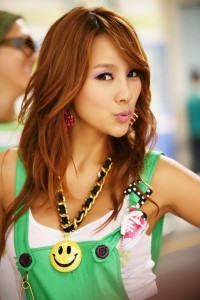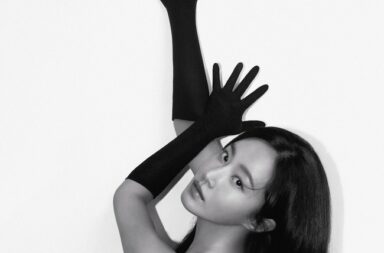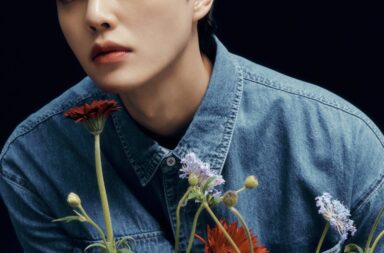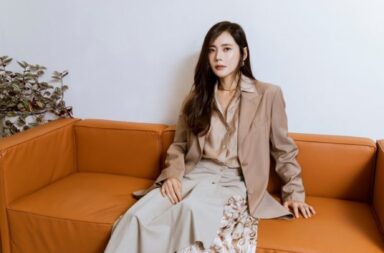Earlier this week, cosmetic company Mamonde released a commercial advertisement for their new “total solution” skin care product featuring one of SNSD‘s resident symbols of perfect(ly unattainable) womanhood, Yuri. Cue the fangirling! Except…wait a minute. This time around, your regularly scheduled helping of fawning over Yuri’s flawlessness is accompanied by a most unusual side dish: feminist rage.
To which I say: really?
 Okay, I’ll bite: this advertisement is outrageously gendered in the worst possible way. It isn’t even attempting to be subtle in its portrayal of the complete subordination of women to men. It’s an in-your-face, undeniable endorsement of women accepting their own incapability and willingly turning over the reins of responsibility and power to men. The fact that the premise of the commercial is barely even tangentially related to the actual product it portends to endorse adds another layer of total inanity. It’s a horrible commercial and it’s a shame that Yuri was made to act like such a stereotypically stupid woman.
Okay, I’ll bite: this advertisement is outrageously gendered in the worst possible way. It isn’t even attempting to be subtle in its portrayal of the complete subordination of women to men. It’s an in-your-face, undeniable endorsement of women accepting their own incapability and willingly turning over the reins of responsibility and power to men. The fact that the premise of the commercial is barely even tangentially related to the actual product it portends to endorse adds another layer of total inanity. It’s a horrible commercial and it’s a shame that Yuri was made to act like such a stereotypically stupid woman.
But this just in: when it comes to women, nearly everything in K-pop is ridiculously gendered — and a fantastically gross proportion of it is complicit in portraying the exact same subordination and subjugation of women that we see in the commercial above. Did it really take something as blatant as Yuri coming to the conclusion that a boyfriend will solve the immediate issue of not having enough cash to buy a designer handbag for people to start getting pissed off?
Let’s think about this. Why are people upset about the commercial? Because it makes women look bad. And how does the rest of K-pop make women look?
Pretty much like that.
For those who don’t understand the meaning of the expression “molla / 몰라,” it translates as, “I don’t know.” And the above songs are just the tip of the iceberg in terms of the total number of times that girl group members say, “I don’t know” in any given song that obviously orients to the cutesy concept. It is usually used to express the singer’s innocence and can often be found in conjunction with such feminist phrases as, “Oh, what should I do?” “This is my first time to feel this way!” “‘I’m so shy!” “I like Oppa!”
Hyperbole aside (obviously, the above does not represent absolutely everything in K-pop), there is a serious problem with the way females are represented in K-pop — and it isn’t just aegyo that’s to blame. Of course, acting like a sexually -developed child is not helping matters, but everything — from styling and dress to lyrics — contributes to the sense of overall inferiority that women in K-pop project. Women are infantilized and subordinated to a ridiculous extent, portrayed as clueless pre-teens that are utterly reliant on the men in their lives to guide them in the ways of love. And unfortunately, this sort of behavior, dress, and language directly reflects and enforces the idea of how the perfect woman should act in order to attract a man.
 One could argue that groups do not always choose to play up the cute concept, and it is true that many groups alternate between “cute” and “sexy” in order to shake things up a bit. However, the “sexy” concepts are rarely about empowering women and deal mostly with either taking revenge on playboy boyfriends or bemoaning the loss their boyfriends due to a painful breakup. Either way, women in K-pop almost always orient themselves around men (or at the very least, the idea of men) in promoting themselves. Even songs that seem like they should be about girl power and the strength of women wind up being accompanied by disastrous visuals or lyrics that totally subvert the purported intention of the song. Consider Lee Hyori‘s “U-Go-Girl.” The title clearly implies the empowerment of the feminine, but the accompanying video (in which geeky, book-reading Hyori transforms into a sexy bombshell after being mocked by a bunch of guys with Euro-mullets) completely destroys any chance of this actually happening. Viewers are left with a simple equation: books and glasses = bad; plastic surgery + makeup + hot clothes = good! As if the music video hadn’t already destroyed any credibility it might have originally had, Hyori is also seen holding a damn lollipop. For the love of god, why is she holding a lollipop?!
One could argue that groups do not always choose to play up the cute concept, and it is true that many groups alternate between “cute” and “sexy” in order to shake things up a bit. However, the “sexy” concepts are rarely about empowering women and deal mostly with either taking revenge on playboy boyfriends or bemoaning the loss their boyfriends due to a painful breakup. Either way, women in K-pop almost always orient themselves around men (or at the very least, the idea of men) in promoting themselves. Even songs that seem like they should be about girl power and the strength of women wind up being accompanied by disastrous visuals or lyrics that totally subvert the purported intention of the song. Consider Lee Hyori‘s “U-Go-Girl.” The title clearly implies the empowerment of the feminine, but the accompanying video (in which geeky, book-reading Hyori transforms into a sexy bombshell after being mocked by a bunch of guys with Euro-mullets) completely destroys any chance of this actually happening. Viewers are left with a simple equation: books and glasses = bad; plastic surgery + makeup + hot clothes = good! As if the music video hadn’t already destroyed any credibility it might have originally had, Hyori is also seen holding a damn lollipop. For the love of god, why is she holding a lollipop?!
The same can be said of Lim Jeong-hee‘s last hit, “Golden Lady.” In this case, the lyrics tell of an independent woman who is kicking her mooch of a boyfriend out of her apartment — but the fact that the independent woman is played by the aegyo-saturation that is G.Na does very little to reinforce this idea of a badass woman who buys her own car and house without a man.
It’s all well and good that people have decided to be outraged by Mamonde’s commercial, but really, they could have decided to be outraged much, much long ago — the material has been there. What accounts for the silence? It could be a change in women’s attitudes over time, but I’m more inclined to suspect that this sort of infantilization and subordination has sadly been internalized by many women to the point where it has become commonplace and even expected. With the boom of girl groups since the early 2000s, women have increasingly been bombarded with visual images of this sort of behavior, and it seems that it has now become deeply embedded in the societal discourse surrounding women, gender, and the attainment of the ideal. Yuri’s advertisement did more than just portray this kind of gender stereotype — it verbalized it, and perhaps this is why many viewers felt that it was just too much.
It is my hope that female consumers of K-pop stop being complacent with their own subjugation. The backlash against Mamonde is a start, but it isn’t enough to change the way that the K-pop industry has operated for a number of years. Women ought to speak out more in favor or an honest and empowering portrayal of women in Korean entertainment, or they will continue to reinforce their own subordination through tacit endorsement and complicit consumption of the way things are.
What do you say, Seoulmates? How did you feel about Mamonde’s commercial?
(The Grand Narrative, Mamonde, CJ E&M)


